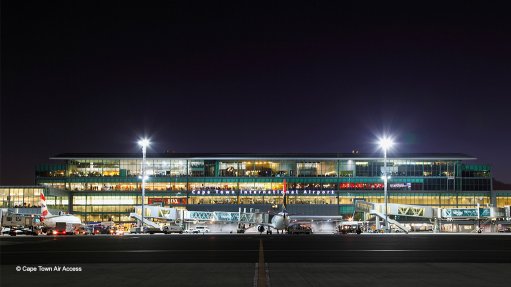Asycuda turns 40
Before breaking into a celebratory cheer, it bears explaining who, or what, Asycuda is. Asycuda – or the Automated System for Customs Data – is a computerised customs management system covering most foreign trade procedures that was designed by the United Nations Conference on Trade and Development (Unctad) to administer countries’ customs data.
The system handles manifests and customs declarations, accounting procedures, and transit as well as suspense procedures, while also generating trade data that can be used for statistical economic analysis. It accounts for the international codes and standards developed by the International Organisation for Standardisation, the World Customs Organisation (WCO) and the United Nations (UN). It can be configured to suit the national characteristics of individual customs regimes, national tariffs and legislation.
Asycuda provides an electronic data interchange between traders and customs administrations using prevailing standards, such as Extensible Markup Language, or XML.
Unctad announced Asycuda’s fortieth anniversary on September 8, noting that Asycuda – Unctad’s largest technical assistance programme – had assisted 126 countries and 40 territories to improve their import and export processes and increase the pace of trade, and had also supported countries’ Covid-19 responses. It is currently used in 100 countries, including 39 least-developed countries, 34 small island developing States and 21 landlocked developing countries.
Asycuda’s creation, in 1981, followed a request from the secretariat of the Economic Community of Western African States to help compile foreign trade statistics in the bloc’s member States. After an evaluation, it became apparent that this would mean involving customs clearance offices and modernising customs clearance procedures to achieve high-quality results. Taking advantage of advances in computer technology, Unctad proposed the development of a customs software system that would be modular, adaptable and configurable, and could be used in difficult environments, requiring only a small number of trained maintenance staff.
Asycuda is directed at reforming customs clearance processes and has the following aims: to speed up customs clearance through the introduction of computerisation and simplifying procedures, thereby minimising administrative costs to the business community and the economies of countries; to increase customs revenue (which is often the major contributor to national Budgets) by ensuring that all goods are declared, that duty/tax calculations are correct and that duty/exemptions, preference regimes, among others, are correctly applied and managed; to produce reliable and timely trade and fiscal statistics to assist in the economic planning process as a by-product of the customs clearance process; and to implement the system as efficiently as possible with a full transfer of know-how to national customs administrations at the lowest possible cost for countries and donors alike. Projects also introduce international standards, including UN/Electronic Data Interchange for Administration, Commerce and Transport, or EDIFACT, and the active cooperation among Asycuda user countries further increases mutual benefits.
Asycuda features a section on customs information, which presents information on general customs and tariffs policies and practices, including the Harmonised Commodity Description and Coding System, the Revised Kyoto Convention, the General Agreement on Tariffs and Trade/World Trade Organisation (WTO) Customs Valuation, the WCO Implementing the WTO Trade Facilitation Agreement, and the Convention on International Transport of Goods under Cover of TIR Convention/Carnets.
The Asycuda website also offers links to important international governmental organisations, such as the Convention on International Trade in Endangered Species of Wild Fauna and Flora, the International Air Transport Association, the International Chamber of Commerce, the International Monetary Fund, the Organisation for Economic Cooperation and Development, the Organisation for the Prohibition of Chemical Weapons, the World Bank, the WCO and the WTO.
Article Enquiry
Email Article
Save Article
Feedback
To advertise email advertising@creamermedia.co.za or click here
Announcements
What's On
Subscribe to improve your user experience...
Option 1 (equivalent of R125 a month):
Receive a weekly copy of Creamer Media's Engineering News & Mining Weekly magazine
(print copy for those in South Africa and e-magazine for those outside of South Africa)
Receive daily email newsletters
Access to full search results
Access archive of magazine back copies
Access to Projects in Progress
Access to ONE Research Report of your choice in PDF format
Option 2 (equivalent of R375 a month):
All benefits from Option 1
PLUS
Access to Creamer Media's Research Channel Africa for ALL Research Reports, in PDF format, on various industrial and mining sectors
including Electricity; Water; Energy Transition; Hydrogen; Roads, Rail and Ports; Coal; Gold; Platinum; Battery Metals; etc.
Already a subscriber?
Forgotten your password?
Receive weekly copy of Creamer Media's Engineering News & Mining Weekly magazine (print copy for those in South Africa and e-magazine for those outside of South Africa)
➕
Recieve daily email newsletters
➕
Access to full search results
➕
Access archive of magazine back copies
➕
Access to Projects in Progress
➕
Access to ONE Research Report of your choice in PDF format
RESEARCH CHANNEL AFRICA
R4500 (equivalent of R375 a month)
SUBSCRIBEAll benefits from Option 1
➕
Access to Creamer Media's Research Channel Africa for ALL Research Reports on various industrial and mining sectors, in PDF format, including on:
Electricity
➕
Water
➕
Energy Transition
➕
Hydrogen
➕
Roads, Rail and Ports
➕
Coal
➕
Gold
➕
Platinum
➕
Battery Metals
➕
etc.
Receive all benefits from Option 1 or Option 2 delivered to numerous people at your company
➕
Multiple User names and Passwords for simultaneous log-ins
➕
Intranet integration access to all in your organisation
















